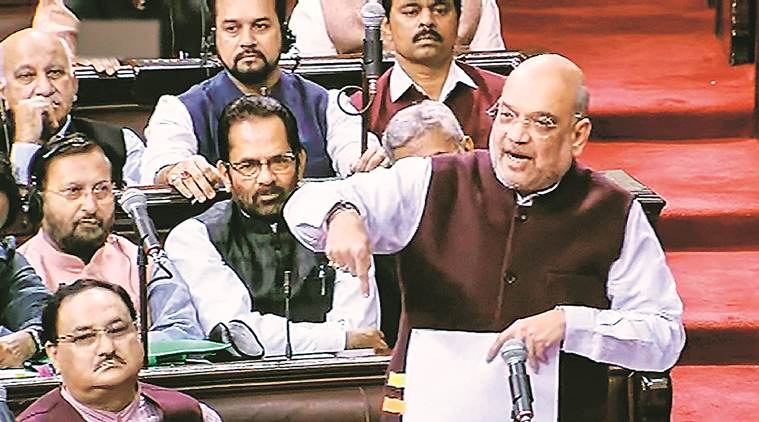
The contentious Citizenship (Amendment) Bill (CAB) was tabled in the Lok Sabha amidst high drama on Monday. The motion to introduce the bill was passed with 293 voting for it and 82 voting against it. There were no abstentions.
This is interesting given how BJP and allies account for 303 seats in the Lok Sabha, but only 293 of them votes for the motion. This clearly means 10 NDA members were against introduction of the bill!
Opposition fights ‘tooth and nail’
Meanwhile opposition parties put up a spirited defence to prevent the introduction of the bill. Even before the CAB could be introduced, Congress Parliamentary Party leader Adhir Ranjan Chowdhury fired his first salvo against it saying, “I do not have any qualms to opine that this is a regressive legislation. It is nothing but targeted legislation against the minority people of our country.” TMC MP Saugata Roy also opposed the bill saying, “While abrogating Article 370, you said one law, one nation. Now you say, the Citizenship Bill will not include areas like Meghalaya, Tripura, Assam and Mizoram.” Roy added, “The Bill is divisive and unconstitutional. It is against everything and violates Article 14 of the Constitution which ensures equality before law of all persons.” Congress MP Shashi Tharoor also minced no words when he said, “I am opposing the Parliament’s legislative competence to address and pass this bill because it is an assault on the foundational values of our republic.”
Amit Shah’s bizarre logic
But BJP chief Amit Shah tried to dismiss concerns about the bill by claiming that the bill wasn’t even 0.001 percent against minorities. He said, “We have been accused of taking away the rights of Muslims, but under our act, anyone can file an application. Many people have been granted citizenship and will continue to get it in future as well. All they have to do is file an application as per the law.” But he failed to explain how could the application of a Muslim person be considered as per a law that has no provision to do so.”
Shah also asked a rather bizarre question, “If we are examining the right to equality, then why are special protections granted to minorities?” This is an oversimplification designed to obfuscate the fact that the special protections are granted to minorities in order to empower them and bring them on an equal footing with the majority. In fact, what Shah asked has been a common refrain at drawing-room discussions where the ‘haves’, on account of their blinkered perspective, view the demands of the ‘have nots’ as special privileges.
Shah then went on to blame the Congress for the need to bring about the bill saying, “After independence, had Congress not done a partition on the basis of religion, then, today we would have not needed this Bill.” This narrative towards the myth that partition led to the creation of a Hindu India and a Muslim Pakistan. Truth is, while Pakistan was created as a nation for Muslims, India remained secular. In fact, Shashi Tharoor had very eloquently addressed this very issue earlier during proceedings saying, “The nationalist movement did not divide the country ideological grounds or on regional grounds or on geographical grounds or linguistic grounds. It divided on one simple principle that should religion be the determinant of our nation. Those who said that religion should determine nationhood, they formed Pakistan. Mahatma Gandhi, Jawaharlal Nehru, Dr Ambedkar and Maulana Azad said that religion should not decide nationhood. Our nation is for everybody.”
The CAB had not come up for discussion at the time of going to press. This story will be updated when it does.